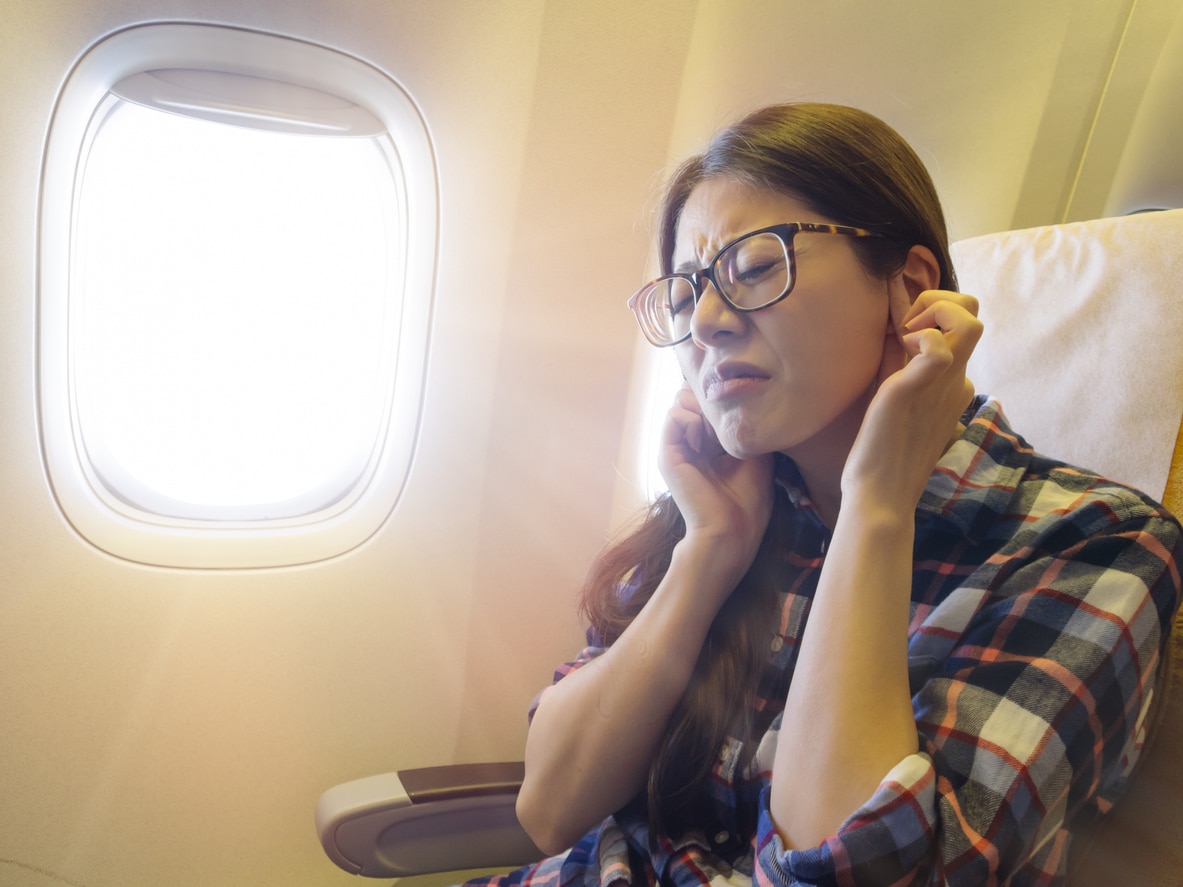You’ve probably experienced that uncomfortable feeling where your ears are full of water and then, suddenly, you hear a popping noise. While this popping sound can be unnerving the first time you hear it, there’s usually no need for alarm.
Ear popping arises when there’s a sudden shift in the pressure between your middle ear and your environment, called ear barotrauma or airplane ear.
What To Know About Ear Barotrauma

Your Eustachian tube connects your middle ear to the back of your throat. The tubes help equalize pressure between your middle ear and your environment. Normally, it maintains pressure without any trouble. But your Eustachian tube can’t react fast enough when you have a sudden pressure change, like when ascending or descending on a flight or during scuba diving.
This pressure imbalance causes a feeling of fullness in the ear. When the Eustachian tube opens to equalize pressure, it can create a popping sound.
Are There Any Long-Term Side Effects of Ear Barotrauma?
Most cases of ear barotrauma only cause a clogged ear feeling, popping and minor discomfort or pain. Rare cases will lead to a perforated (torn) eardrum.
How Can I Prevent Ear Barotrauma?
There are two effective ways you can help prevent ear barotrauma:
- The Valsalva maneuver. To employ the Valsalva maneuver, pinch your nose, close your mouth and blow gently into your nose.
- Swallowing or yawning. Swallowing and yawning help open the Eustachian tube. You can promote more frequent swallowing by chewing gum or sucking on hard candy.
Perform one or both preventative measures during flights or long drives to Horsetooth Falls and other high-elevation Colorado areas. Your options are a little more limited when scuba diving because you’ll use a breathing apparatus. Your instructor will likely direct you to take occasional breaks during resurfacing to prevent barotrauma.
In addition to these moves to equalize pressure, it’s best not to fly with a cold, allergies, ear and sinus infections or any other condition that causes inflammation in the nose or ear, as these can raise the risk of barotrauma.
When to Seek Help
Most cases of ear barotrauma will resolve themselves within a few minutes or hours of landing or surfacing. If you notice any additional symptoms—pain, drainage, muffled hearing, etc.—that don’t go away within a few weeks, schedule an appointment at Alpine Ear Nose & Throat PC for an evaluation.